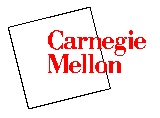

|
|
Conventions used in the tutorials
About the authors
More about automatic control
Copyright
Matlab is an interactive program for
numerical computation and data visualization; it is used extensively
by control engineers for analysis and design. There are many different
toolboxes available which extend the basic functions of Matlab into
different application areas; in these
tutorials, we will make extensive use of the Control Systems Toolbox.
Matlab is supported on
Unix, Macintosh, and Windows environments; a student version of Matlab is
available for personal computers. For more information on
Matlab, contact the Mathworks.
Throughout the tutorials, we will use the following conventions for Matlab input and output.
If you find that the font is too hard to read, you can change the default font in your browser (under the Preferences menu in Netscape).Matlab input commands will be displayed like this so they can easily be copied and and pasted into the Matlab window. Actual Matlab commands will be shown in red. Matlab's output will be displayed directly beneath like this.
These tutorials were developed by Professor Bill Messner of the Department of Mechanical Engineering at Carnegie Mellon University and Professor Dawn Tilbury of the Department of Mechanical Engineering and Applied Mechanics at the University of Michigan. Funding was provided by the National Science Foundation under grant number DUE 9554819. Most of the development work was done by undergraduate students Luis Oms (CMU), Joshua Pagel (UM), Yanjie Sun (UM), and Munish Suri (CMU) over the summer of 1996 and Christopher Caruana (UM), Dai Kawano (UM), Brian Nakai (CMU) and Pradya Prempraneerach (CMU) over the summer of 1997. Graduate student Jonathon Luntz (CMU) also contributed. A prototype set of tutorials, developed by Prof. Tilbury, won an Undergraduate Computational Science Award from the UCES Project, sponsored by the U.S. Department of Energy through the Ames Laboratory.
There are many textbooks which treat the material covered in these tutorials, including:
All Rights Reserved. Permission is hereby granted for the recipient to make copies and use this software for its own internal purposes only, under the conditions that this copyright message is retained intact and that no modifications are made to the software. Recipients of this software may not re-distribute this software outside of their own institution. Permission to market this software commercially, to include this product as part of a commercial product, or to make a derivative work for commercial purposes, is explicitly prohibited. All other uses are also prohibited unless authorized in writing by the Regents of the University of Michigan.
This software is offered without warranty. The Regents of the University of Michigan disclaim all warranties, express or implied, including but not limited to the implied warranties of merchantability and fitness for any particular purpose. In no event shall the Regents of the University of Michigan be liable for loss or damage of any kind, including but not limited to incidental, indirect, consequential, or special damages.